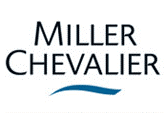Best Lawyers Near You in New Orleans, Louisiana for International Trade and Finance Law
Practice Area Overview
International Trade and Finance includes a range of legal specialties reflecting new global rules for international trade, conventions establishing new standards for companies operating abroad, aggressive national regulation of international business, and disputes among and across nations and cultures. Accordingly, multinational clients now turn to law firms for advice in multiple legal specialties. The most prominent include the following:
International Commercial and Finance Law. Various laws and international agreements govern corporate organization, contractual terms, financing, and the protection of investments in transactions between private parties across international borders.
Trade Remedy Laws. Anti-dumping, countervailing duty, and “safeguards” laws are designed to protect domestic industries from injury by unfair trade practices by foreign producers and surges in imports.
Anti-Corruption Law. The U.S. Foreign Corrupt Practices Act, which prohibits bribery of foreign government officials, has spawned a succession of international conventions and similar laws in some 140 countries. Worrisome for multinationals, anti-corruption law has produced dramatic spikes in enforcement and penalties in the range of hundreds of millions of dollars against both companies and individuals.
Export Controls and Sanctions. Enforced by a variety of federal agencies, export controls have evolved into a broad, complex network of restrictions on the outbound trade of goods, services, funds, and technology. Exports are restricted for reasons ranging from national security to human rights and may apply depending on the good, service, end-use, foreign person or entity, or country at issue.
Trade Policy. This category generally subsumes any frictions between countries in international trade and investment not directly covered by other laws. Access to foreign markets, violations of WTO rules, barriers to trade, and special trade preferences are addressed by the U.S. Trade Representative’s Office or on Capitol Hill, with dashes of both policy and politics, as well as law.
Free Trade and Customs. Customs duties and tariffs remain central to planning international commercial transactions, as do exceptions or preferences under free trade agreements or other programs. Just as important are the many laws that restrict access to the United States of products that threaten health or welfare. Customs planning, responding to government audits, and assessing the occasional interrelation with other legal issues (such as taxation) characterize this practice.
Intellectual Property Protection. Owners of U.S. intellectual property rights who believe that imports are infringing those rights may ask Customs to bar entry of counterfeit products or litigate their claims before the U.S. International Trade Commission and, if successful, obtain an “exclusion order” barring the importation of all infringing products.
Dispute Settlement. The resolution of international disputes in national courts and before international arbitral tribunals has spread to a broader variety of bi-lateral or multi-lateral tribunals created by international trade and investment agreements.

Lawyers who have a subscription to profiles appear first.
Would you like to claim your lawyer profile?
Contact UsOur Methodology
Recognition by Best Lawyers is based entirely on peer review. Our methodology is designed to capture, as accurately as possible, the consensus opinion of leading lawyers about the professional abilities of their colleagues within the same geographical area and legal practice area.
The Process
Best Lawyers employs a sophisticated, conscientious, rational, and transparent survey process designed to elicit meaningful and substantive evaluations of the quality of legal services. Our belief has always been that the quality of a peer review survey is directly related to the quality of the voters.




